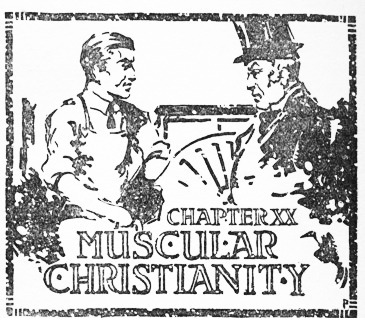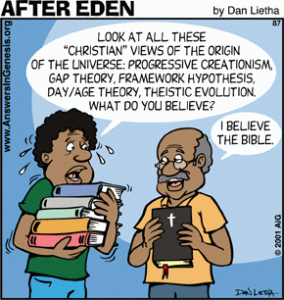Recovering from Biblical Manhood and Womanhood. How the Church Needs to Rediscover her Purpose. By Aimee Byrd. Grand Rapids: Zondervan Reflective, 2020. 235 pp. $18.99.
It is an unfortunate development that the terms complementarian and egalitarian have come to describe the position one takes on the ordination of women to ministry. Egalitarians do not deny that, in a general sense, masculine and feminine traits complement each other in society and in the church. Nor do complementarians necessarily deny that women are ontologically equal to men. Not necessarily. But the past several decades have witnessed a rising and more aggressive form of complementarianism that describes women as ontologically weaker; it claims that women are defined by submission to male authority. To bolster this teaching of general male authority and leadership, and a corresponding general female submission and receptivity, a few of these “hard complementarian” theologians projected their gender categories back into the immanent trinity, resulting in a teaching now referred to as ESS, the doctrine of the eternal subordination of the Son. In 2015, Aimee Byrd, who styles herself “The Housewife Theologian,” was one of the first to call out this transgression into heretical Trinity doctrine, and her suspicions that this was a form of subordinationist heterodoxy were confirmed by a number of leading experts on trinitarian doctrine.
In this book, Byrd examines that hyper-authoritarian, male-centered movement among very conservative churches. Her title is a cheeky play on the title of the 1991 book, Recovering Biblical Manhood and Womanhood, produced by the parachurch organization specifically founded to promote male authority and leadership and female submission, the Council on Biblical Manhood and Womanhood (CBMW). One of the problematic developments Byrd calls out in her book is that the CBMW has produced two “statements” that they encourage church leaders to adopt, the 1987 Danvers Statement, which states that church leadership is reserved for men and condemns biblical interpretation that begs to differ, and the 2017 Nashville Statement, which affirms heterosexuality and condemns homosexuality and “transgenderism,” while betraying no familiarity with the reality of sexual dysphoria. Byrd points out that parachurch organizations have no business putting out these quasi-creedal statements for the adoption of churches. It is the job of the church to do so. But, as Byrd points out, churches have outsourced much of their discipling work to such parachurch organizations.
The cover of Byrd’s volume points to its major theme, taken from the 1892 short story, The Yellow Wallpaper, by women’s rights advocate Charlotte Perkins Gilman. The yellow wallcovering functions in much the same way as gaslighting, keeping persons from seeing the truth of their situation. Byrd argues, persuasively, that there is a kind of “yellow wallpaper” that dulls the senses and obscures the authentic biblical view of women among many Christians and churches today, and particularly in the extreme complementarian movement, in which the patriarchal and racially-incendiary teachings of Douglas Wilson and his disciples should also be included. Byrd aims to peel away the wallpaper, often comprised of unconscious social stereotypes, that keeps us from seeing the authentic biblical picture of men and women. This picture is not centered on “authority and submission, strength and neediness” (22), but on men and women truly complementing each other in the family, society, and the life of the church as co-workers and partners.
After this all-important introduction, the book proceeds in three parts, the first of which examines how men and women read Scripture. Byrd peels back the yellow wallpaper to expose how gender-specific study Bibles reflect patronizing stereotypes of women and assume that men cannot learn from women. Byrd goes on to demonstrate how Scripture, while reflecting a patriarchal context, also challenges that patriarchy. She reviews a number of “gynocentric interruptions” in scripture, episodes in which women take center stage, disrupting the usual male-centered narrative, including the narratives of the Hebrew midwives in Egypt, Rahab (whom she relates quite effectively to Jesus’ encounter with the Canaanite woman), Ruth, the judge Deborah, and Elizabeth and Mary the mother of Jesus. These women are not merely passive and submissive. They take initiative. They lead. She emphasizes how many women in Scripture act as “tradents,” handing down biblical teaching to the next generation. Curiously missing here are the names of Lois and Eunice, who taught young Timothy the faith and are clear examples of women teaching the faith. However, Byrd likely wants to emphasize how so many women in scripture teach and lead adult men, which is more controversial for strict complementarians.
In the second part, Byrd talks about how discipleship in the church is a joint enterprise involving both men and women. Here she peels away CBMW’s claims to represent a biblical view of male-female relations. She questions why churches are looking to parachurch organizations both for discipling members and for considering issues such as gender and sexuality. She exposes how the CBMW perspective, which claims that men and women are inexorably characterized by authority and submission, is shaped profoundly by cultural assumptions, not solid biblical exegesis. She refutes the idea that the Bible teaches different ends, static and unchanging roles, or different virtues for men and women. She rejects the claims of CBMW that tend to make the affirmation of male authority and female submission the litmus test of orthodoxy and the central teaching of the faith, as Owen Strachan did with his audacious claim that “the gospel has a complementarian structure” (121). Byrd only parenthetically mentions intersex persons (121–122), albeit in a gracious way, but she never brings up the issue of gender dysphoria, which is a pressing issue today. A few sentences commending humility and graciousness in such situations would have been welcome.
In the final section, Byrd examines the responsibility of every believer. Here she focuses on men and women as allies and coworkers in the work of discipleship, transmitting the faith, and worship. Byrd consistently draws on some of the leading voices in Reformed theology and biblical studies, as well as outstanding scholars from other traditions. She believes that it is important for both women and men to know their doctrine, and she exemplifies this learnedness herself. She frequently corrects misconceptions, such as the idea that Eve’s creation subsequent to that of Adam implies that Eve is inferior; rather, Eve’s creation has an eschatological meaning, pointing to the man’s end and glory. She foreshadows both humanity’s redemption as the Bride of Christ, and the Bride of the book of Revelation, representing the completion of the redemption of humanity and of all creation.
Byrd affirms how the differences between men and women are positive and, in fact, genuinely complementary, and she encourages churches that have exclusively male ministers not to conduct ministry that is exclusively male-centered. Byrd, who affirms male-only ordination but eschews the labels complementarian and egalitarian, suggests (without citing examples) that egalitarians gloss over these differences. Here one must object that persons have become egalitarian precisely because they have witnessed how women minister and lead in ways that contribute something that men simply cannot; men and women in ordained ministry complement each other and fundamentally improve the work of ministry. But Byrd intentionally avoids the topic of ordination, for good reason. She is especially addressing a rather conservative audience; she speaks from within that conservative tradition and calls believers to a more biblical and more affirming attitude toward women in the church, even if they continue to restrict ordination to males.
Byrd shows that women in the New Testament helped to plant churches and also led house churches. She emphasizes the confidence and authority Paul placed in Phoebe when he entrusted her with delivering his crucially important Letter to the Romans, though she hesitates to affirm that she held the office of deacon. Byrd demonstrates how Paul does indeed refer to Junia as an apostle, though she recognizes how perilous this acknowledgment is for those who claim ministry is reserved exclusively for men (227). Byrd’s arguments are strong, particularly where she critiques the rigid, universalizing claims of CBMW and its flirtation with anti-Nicene heresy. Her biblical interpretation is solid, and often it is fascinating. Some points are more debatable, such as her acceptance of a reading of the highly-contested Eph. 4:12 that denies equipping the saints for ministry and instead emphasizes formal ministry, or the allegorical interpretation of the Song of Songs; but both of these issues are tangential. One matter that is regrettable and perplexing is a consistent and conspicuous lack of editorial care on the part of the publisher; this mars the book’s style and frequently interferes with the communicative flow of Byrd’s argument. Byrd’s book deserved better.
Byrd’s guide to recovery from the extreme positions of CBMW comes at an important moment; some evangelicals are advocating overt patriarchy as the one faithful and biblical model of church, family, and society life. It is also a moment in which Christians, churches, and Christian organizations are facing the reality of abuse in churches, or sometimes refusing to face that reality. No doubt, Byrd’s volume will truly enable persons, especially women but also men, to recover from the unbiblical constraints of hyper-complementarianism.
Shortly after the publication of this volume, Byrd was vilified in her own conservative Presbyterian and evangelical circles. The Alliance of Confessing Evangelicals hosted her blog and the podcast that she shared with theologian Carl Trueman and Pastor Todd Pruitt. When she published her book and interacted with some of her critics, the ACE cut ties with her; she had to move her blog and she was removed from the podcast. Moreover, she was the subject of vile, misogynistic attacks and ridicule by Presbyterian and Reformed pastors on social media, which were later exposed to the public. Not only does this behavior serve to prove her point, it also raises a serious challenge to Byrd herself and to the churches she is addressing. Can churches that prohibit women from ordained church leadership—even if they manage to avoid the hyper-complementarianism of CBMW—still affirm women’s gifts and crucial importance to the church? Can such churches take women seriously as coworkers in discipleship and the church’s mission? Historically speaking, they have not. The prospects seem doubtful. Maybe there is still one more bit of yellow wallpaper that needs to be torn away for women to truly be able to thrive according to the biblical model that Aimee Byrd so convincingly brings to light.
—Dr. Raymond A. (Randy) Blacketer

 In recent times, the debate over whether women should be ordained as elders and pastors has been framed, rather badly I think, by the terms egalitarian and complementarian. The term egalitarian means “supporting equality.” It asserts that men and women are equal. Yet most complementarians would agree that women and men are equal, but dispute the assertion that this equality means that women and men have the same roles in the church. However, some (certainly not all) complementarians also seriously undermine the equality of women in ways that are shockingly sexist and misogynist. One sees this particularly in the
In recent times, the debate over whether women should be ordained as elders and pastors has been framed, rather badly I think, by the terms egalitarian and complementarian. The term egalitarian means “supporting equality.” It asserts that men and women are equal. Yet most complementarians would agree that women and men are equal, but dispute the assertion that this equality means that women and men have the same roles in the church. However, some (certainly not all) complementarians also seriously undermine the equality of women in ways that are shockingly sexist and misogynist. One sees this particularly in the  Sunday school or catechism or a youth group lesson or lead a Bible study that includes men? Can they teach boys the faith? The preacher Timothy seems to have learned the faith from two important women in his life, his grandmother Lois and his mother Eunice (
Sunday school or catechism or a youth group lesson or lead a Bible study that includes men? Can they teach boys the faith? The preacher Timothy seems to have learned the faith from two important women in his life, his grandmother Lois and his mother Eunice ( keep his ‘complementarianism.’” But the doctrine of the Trinity is not the main reason for this post. It’s the “complementarianism” that moves me to write today. This new and controversial understanding of the Trinity is driven by a theological anthropology (that is, a particular view of humanity) that sees women (not wives but women per se) as subordinate in function to men (not husbands). This hierarchical anthropology is then projected onto the Trinity, in order to bolster the anthropology. That theory of humanity that views women as created by God to submit to male leadership is called complementarianism. An old friend of mine, an outstanding historical theologian and a complementarian, Carl Trueman,
keep his ‘complementarianism.’” But the doctrine of the Trinity is not the main reason for this post. It’s the “complementarianism” that moves me to write today. This new and controversial understanding of the Trinity is driven by a theological anthropology (that is, a particular view of humanity) that sees women (not wives but women per se) as subordinate in function to men (not husbands). This hierarchical anthropology is then projected onto the Trinity, in order to bolster the anthropology. That theory of humanity that views women as created by God to submit to male leadership is called complementarianism. An old friend of mine, an outstanding historical theologian and a complementarian, Carl Trueman, 

